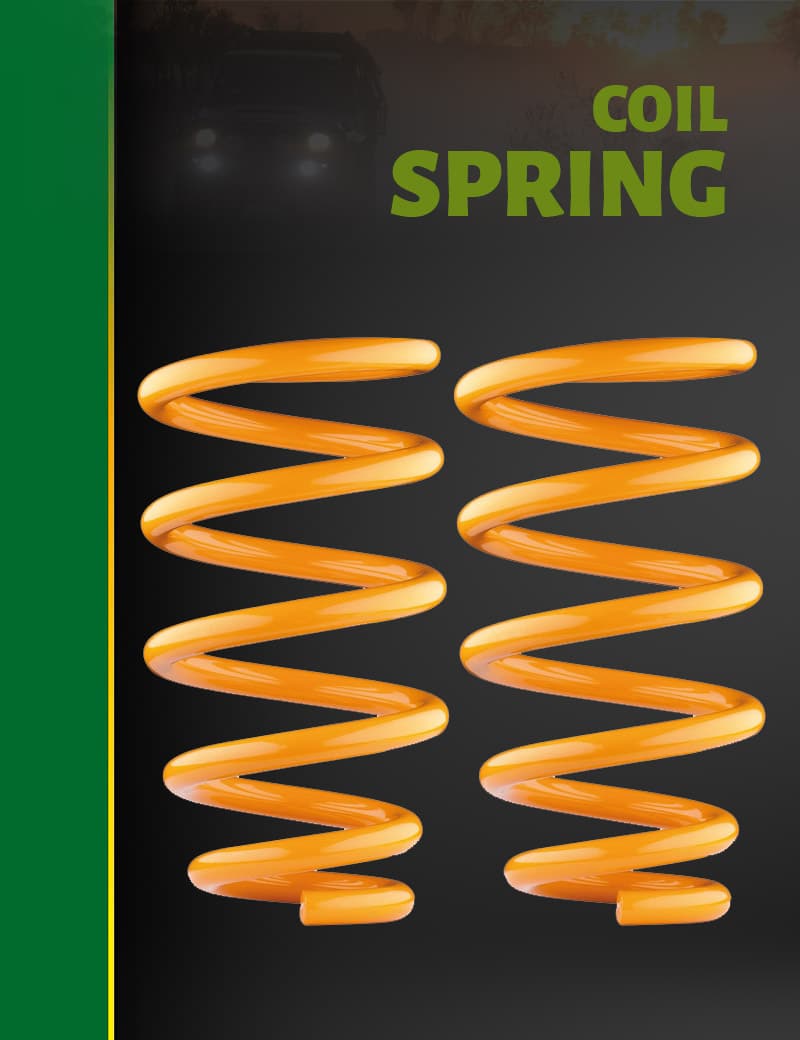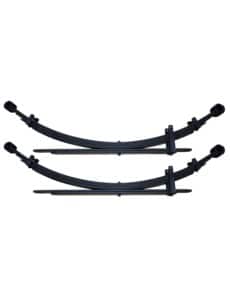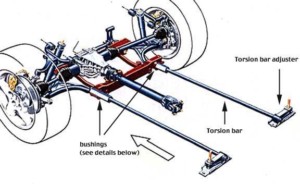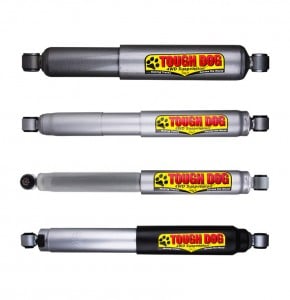We love long-distance travel, and 4×4 road trips and adventure travel are among the most popular ways to spend holidays in Australia. For your 4×4 to be in optimum condition, it needs the right suspension system. Here’s what you need to know!
Table of contents
What is a 4×4 suspension?
The 4×4 suspension is what balances and supports the vehicle in both road and off-road situations. It refers to springs, shock absorbers, tires, tyre air, and linking parts connecting the wheels and allowing a smooth motion between them. Without a properly functioning suspension system, the vehicle could be damaged in several ways.
What are the benefits of a 4×4 suspension?
• Optimises the overall performance of the vehicle
• Helps keep the wheels on the surface of the whole road surface
• Helps the vehicle maintain smooth driving in any condition
• Helps protect the vehicle and its contents from damage
• Improves traction over bigger bumps and steep inclines
• Increases load carrying capability
• Controls the weight and balance of the vehicle
What parts make up a suspension system?
There are many essential parts that will make up the rig’s suspension system, but the main components are the springs and shock absorbers.
A) Springs
 There are four types of springs that make up most suspension systems.
There are four types of springs that make up most suspension systems.
1. Coil Springs
Coil springs are the most common and typical type of spring you’ll see in most vehicles, both 4×4 or standard cars. They are suitable for overall ride quality and intuitive handling. Different sizes can handle various carry loads. The higher the per-inch spring rate, the stiffer the spring.
2. Leaf Springs
Fun fact: Did you know Leaf springs actually date back to Roman times when they were used on chariots in wood form? They barely changed in design till the early 1900’s when Ford invented the modern shock absorber in 1927. Due to the sheer amount of metal layered together, leaf springs offer a large amount of support between the wheels, axles, and the car’s chassis. Today they are predominantly used on more prominent vehicles like trucks and 4×4 vehicles because of their ability to handle heavy loads.

3. Torsion bars
Torsion Bars take up less space than other types of springs. They don’t flatten out like leaf springs or compress like a coil spring. They work well when the wheel hits a bump and moves upwards, and tension is created. They are mounted in a front-to-rear position on the vehicle, allowing bars to have a greater length for more up-and-down wheel travel on 4x4s.
Spring rates of torsion bars are determined by a bar’s thickness, overall diameter, length, and the material it’s made out of (usually steel alloy).
4. Air springs
Air-suspended vehicles swap the coil and leaf springs for pressurised flexible rubber springs filled with air. The right height can be adjusted to provide optimal ride quality of the car and the right height for the ride. The advantage of air springs is that they can keep the 4×4 at a constant height no matter the vehicle’s load. While these are popular for versatility, leaf and coil springs setups are still the most popular choice.
B) Shock absorbers
Shock absorbers do precisely what their name suggests; they reduce shock, disperse the movement of the springs and compensate for wheel movement. They are essential for performance and safety because they control the speed and weight transfer of the car. One thing to consider is a shock that may only be designed for on-road travel, and low vehicles will have a much shorter lifespan than vehicles that often travel off-road and on rugged terrain.
To learn about IFS, IRS, MacPherson Strut, Air Suspension and more, we recommend reading our blog ‘What 4WD Suspension Suits Your Car‘.
How to choose the right type of 4×4 suspension for your car
The first thing you need to think about is what type of 4×4 adventures are you likely to be doing. If you’re the kind of person that likes camping and the occasional beach drive, you’ll be looking for a different option than someone who wants to tackle Australia’s roughest outback bush tracks regularly.
Here are some things to keep in mind.
1. Terrain
As mentioned above, the type of adventures you take will determine the suspension and the costs. Urban driving adventures won’t require a heavy-duty suspension kit. However, if you plan on pushing your vehicle to its limits, a higher-grade suspension system will be needed.
2. Weight
When you think of the weight of the car and what is packed for an adventure, you might think of esky’s, fridges, cargo etc., But when you add rear bars, bull bars, duel fuel tanks, roof racks and other modifications on your vehicle, you may be pulling more weight than you think. Your suspension needs to accommodate all these things.
3. Flex
The 4WD flex refers to how planted your tyres are to the ground or traction and influences vehicle tilt. The more flex you have, the easier the drive will be through deep ruts, and it will also decrease the chance of rolling.
4. Comfort
Even if you’re content with bush bashing and driving through the most rugged tracks you can find, you don’t want to feel every bump and lump along the way.
5. Durability
Again, the type of shock absorbers you choose should be thought about inconsistency with the amount of off-road adventures you’ll have. You’ll need to consider what kind will be more durable and stand the test of time for your adventures.
The most significant difference between a good suspension and a poor suspension will become apparent as soon as you test your vehicle in harsh terrains. You’ll be able to notice deficiencies in the loads carrying capabilities, ground clearance and comfort of the ride in general.
Whenever you feel like something is not quite right, don’t ignore your instincts because you may end up in a dangerous situation or endangering the lives of your passengers and others. Sounds like constant clunking noises, or if the car feels bouncy around corners or rattling noises are all things that should be checked out quickly.
We have more tips and information ie. on maintaining your 4WD or how to install suspension lift kits, and we can answer any questions you may have.
A trained team member will always be more than happy to answer any questions that you might have about suspensions or other 4WD accessories and set up an appointment. Give us a call on (02) 4973 6009 today or send us an email with your questions or concerns.



Recent Comments